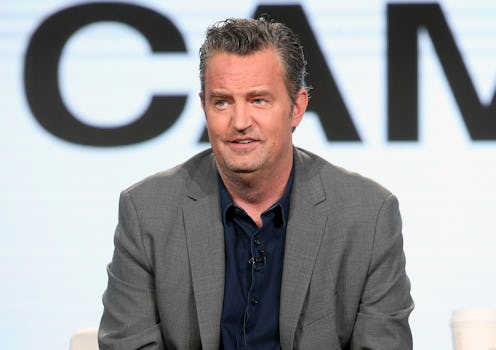TV & Movies
Friends Star Matthew Perry Was Given A “2% Chance To Live” By Doctors
Perry details his long battle with addiction in a new memoir, Friends, Lovers and the Big Terrible Thing.

Matthew Perry, who famously portrayed Chandler Bing in Friends, has spoken candidly about facing death in 2018 as he battled addiction issues. Ahead of the publication of his memoir Friends, Lovers and the Big Terrible Thing on Oct. 28, the actor says he now feels that he’s in a place where he can share his experiences in more detail. "I had to wait until I was pretty safely sober — and away from the active disease of alcoholism and addiction — to write it all down,” he told People magazine. “And the main thing was, I was pretty certain that it would help people."
The sitcom star opens his forthcoming memoir with the shocking revelation that he almost died in 2018, aged 49. “The doctors told my family that I had a two percent chance to live," he admitted. Perry’s colon burst due to opiate overuse, and he spent two weeks in a coma fighting for his life. "I was put on a thing called an ECMO machine, which does all the breathing for your heart and your lungs. And that's called a Hail Mary. No one survives that.”
Despite the odds being stacked against him, Perry lived to tell the tale. "There were five people put on an ECMO machine that night and the other four died and I survived," he explained. "So the big question is, why? Why was I the one? There has to be some kind of reason."
The actor spent a further five months in hospital, and used a colostomy bag for the next nine months — he’s since undergone 14 surgeries to repair the damage. "That's a lot of reminders to stay sober," he added. “All I have to do is look down."
"I think [people who read the memoir will] be surprised at how bad it got at certain times and how close to dying I came," Perry said. "I say in the book that if I did die, it would shock people, but it wouldn't surprise anybody. And that's a very scary thing to be living with. So my hope is that people will relate to it, and know that this disease attacks everybody. It doesn't matter if you're successful or not successful. The disease doesn't care."
For more information and support about addiction, visit With You.